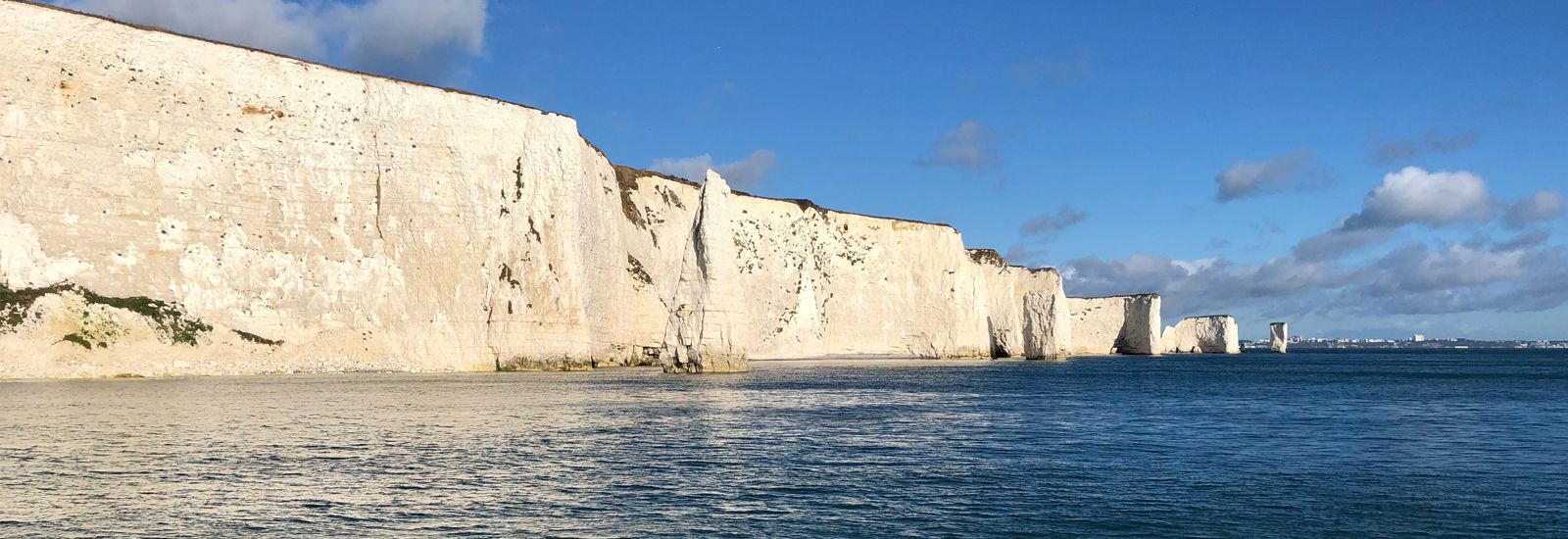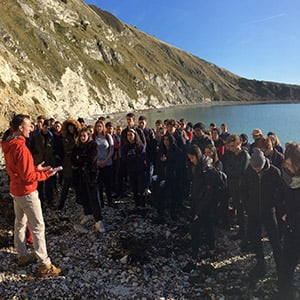
Geography
Course overview
UCAS code: L700
Entrance requirements: A*AA
Course duration: 3 years (BA)
Subject requirements
Required subjects: Not applicable
Recommended subjects: Geography
Helpful subjects: Not applicable
Other course requirements
Admissions test: None
Written Work: None
Admissions statistics*
Interviewed: 77%
Successful: 23%
Intake: 74
*3-year average 2022-24
Contact
Tel: +44 (0) 1865 285070
Email: undergraduate.enquiries@ouce.ox.ac.uk
Unistats information for this course can be found at the bottom of the page
Please note that there may be no data available if the number of course participants is very small.
About the course
Geography provides a diverse interdisciplinary degree that bridges the natural and social sciences. It provides enhancement of a broad range of transferable skills, and an education encompassing pressing issues at a range of scales, from local up to global.
The degree spans such key topics as:
- climate and environmental change
- inequality
- social, economic and cultural transformation
- biodiversity loss
- geomorphological processes in drylands
- geographical data science
- post-colonialism
- globalisation.
The Oxford Geography degree provides a holistic view of the workings of physical and human environments, the ways in which humans are transforming the world and the implications for human societies.
Students are introduced to the full range of geographical topics in the foundational courses, which they can then follow up in more detail in the optional papers, shaping their programme to match their developing interests.
There is emphasis placed on interdisciplinary approaches within the course, with opportunities to explore the intersections between geography and other disciplines from the humanities, social and natural sciences.
The facilities available at Oxford are among the best in the country. Field equipment used by students for fieldwork reports and dissertations include:
- Lidar systems for remote sensing of winds
- theodolites for tracking balloons to calculate winds in the lower atmosphere
- high specification systems for working with climate data.
The department also has well-equipped Geolabs for practical physical courses and individual research projects. These include the Geography Research and Teaching Labs, the Oxford Luminescence Dating Lab and the Oxford Resilient Buildings and Landscapes Lab.
Students are also trained in qualitative research methods that are particularly useful for human geography, such as:
- interviewing
- literature reviews
- archival research
- focus group and workshop facilitation
- ethnography.
There are opportunities to learn advanced data analysis and coding skills. The central and collegiate Library resources, electronically and in print are second to none.
Fieldwork and international opportunities
The School of Geography and the Environment emphasises the importance of fieldwork since we believe there is no substitute for teaching subjects first-hand.
In the first year, all students take part in:
- a four-day physical geography field trip in the first term
- a one-day trip to the university research site in Wytham Woods,
- a day of human geography fieldwork in Oxford.
Second-year students will undertake a week-long overseas residential field course (currently to the Netherlands and Tenerife). All of this fieldwork is funded by the department.
Independent research, whether field-based, employing geocomputational tools, remote-sensed data, in laboratories, or archives, is also a key element of the dissertation.
 |  |  |
'I chose to study geography at Oxford because I loved the idea of being able to study a diverse range of topics that covered all my interests as I enjoy both physical and human geography equally. So far, it has been great to have a range of different ways to learn, such as lectures, classes and tutorials. This means no day is the same and you can explore in detail such fascinating ideas and gain new skills from tutors and lecturers that are some of the best in their field.' Maddy | 'I enjoy the course because it allows for breadth across a wide range of topics and depth into the important issues facing the world. Studying both human and physical geography in first year, whilst gaining proficiency in statistical analysis and field methods, means that no day is the same and there is always something interesting and novel to explore. Having a solid basis of knowledge across the discipline then provides you with the skills to specialise in the final two years. The system of lectures in the department and tutorials in your college means that you learn a range of content but have the opportunity to delve deeper into content through writing essays and participating in tutorials that are often 2/3 students to 1 tutor – an offering that you don’t get at most other universities.' Ted | 'I love how much variety there is in the geography course! Everyone studies both human and physical in 1st year with options to specialise in 2nd and 3rd year. I arrived thinking I was a human geographer, but I’ve now chosen to study both physical and human modules! This also means I’ve learnt so many new skills- I’ve learnt how to interview, code, and even track wind patterns using balloons.' Maya |
Unistats information
Discover Uni course data provides applicants with Unistats statistics about undergraduate life at Oxford for a particular undergraduate course.
Please select 'see course data' to view the full Unistats data for Geography.
Please note that there may be no data available if the number of course participants is very small.
Visit the Studying at Oxford section of this page for a more general insight into what studying here is likely to be like.
Geography
A typical week
- Lectures in the morning
- Seminars/practical classes in the afternoon
- Tutorials: at least one college tutorial a week, and some college-based classes.
Tutorials usually consist of 2-4 students and a tutor. Group sizes for optional departmental seminars and classes may vary depending on the options you choose, but are typically below 20 students.
Most tutorials, classes, and lectures are delivered by staff who are specialists in their subject. Many are world-leading experts with years of experience in teaching and research. Some teaching may also be delivered by postgraduate students who are usually studying at doctoral level.
To find out more about how our teaching year is structured, visit our Academic Year page.
Course structure
Year 1
Courses | Assessment |
|---|---|
| Four written papers: two fieldwork reports; submitted essay on Geographical controversies |
Years 2 and 3
Courses | Assessment |
|---|---|
| Six written papers: three extended essays; fieldwork report; dissertation |
The options listed above are illustrative and may change. The University may cap the number of students who are able to take a particular one. A full list of current options is available on the Geography website.
The content and format of this course may change in some circumstances. Read further information about potential course changes.
Academic requirements
Qualification | Requirement |
|---|---|
A-levels: | A*AA |
Advanced Highers: | AA/AAB |
International Baccalaureate (IB): | 39 (including core points) with 766 at HL |
Any other equivalent qualification: | View information on other UK qualifications, and international qualifications. |
Wherever possible, your grades are considered in the context in which they have been achieved.
Read further information on how we use contextual data.
Subject requirements
Recommended: | It is recommended for candidates to have Geography to A-level, Advanced Higher or Higher Level in the IB or another equivalent. |
|---|
If a practical component forms part of any of your science A‐levels used to meet your offer, we expect you to pass it.
If English is not your first language you may also need to meet our English language requirements.
Applying
All candidates must follow the application procedure as shown on our Applying to Oxford pages.
The following information gives specific details for students applying for this course.
Admissions test
You do not need to take a written test as part of an application for this course.
Written work
You do not need to submit any written work when you apply for this course.
What are tutors looking for?
Applicants will need to display evidence of a strong academic record.
At interview tutors are looking for a candidate’s ability to deploy their knowledge in ways that show initiative and an awareness of the world around them. Interviews are not a test of knowledge but give candidates the opportunity to respond in a thoughtful way to unpredictable questions and ideas.
Visit the Geography website for more detail on the selection criteria for this course.
Careers
The broad set of transferable skills means Geography graduates have a wide range of career opportunities.
In recent years graduates have proceeded to employment in environmental policy, climate science, communications and media, charities and NGOs including the United Nations, management consultancy, government and politics, conservation and heritage management, the law, banking, finance, teaching, research, and much more.
Karoline, a Migration Policy Officer, says:
‘“Thinking geographically” is still very much part of my work: migration is a matter which can only be properly understood from a multi-disciplinary perspective. Not only is it useful that I was as used to reading studies about migration dynamics as I was to understanding the latest report by the Intergovernmental Panel on Climate Change… the very Oxfordian skill to be able to turn out concise written work in super-short timeframes is trained and tested on nearly a daily basis!’
You can read more on alumni profiles on the Geography website.
Note: These annual fees are for full-time students who begin this undergraduate course here in 2025. Course fee information for courses starting in 2026 will be updated in September.
We don't want anyone who has the academic ability to get a place to study here to be held back by their financial circumstances. To meet that aim, Oxford offers one of the most generous financial support packages available for UK students and this may be supplemented by support from your college.
Fees
Fee status | Annual Course fees |
| Home | £9,535 |
| Overseas | £46,600 |
Further details about fee status eligibility can be found on the fee status webpage.
For more information please refer to our course fees page. Fees will usually increase annually. For details, please see our guidance on likely increases to fees and charges.
Living costs
Living costs at Oxford might be less than you’d expect, as our world-class resources and college provision can help keep costs down.
Living costs for the academic year starting in 2025 are estimated to be between £1,425 and £2,035 for each month you are in Oxford. Our academic year is made up of three eight-week terms, so you would not usually need to be in Oxford for much more than six months of the year but may wish to budget over a nine-month period to ensure you also have sufficient funds during the holidays to meet essential costs. For further details please visit our living costs webpage.
Financial support
Home | A tuition fee loan is available from the UK government to cover course fees in full for Home (UK, Irish nationals and other eligible students with UK citizens' rights - see below*) students undertaking their first undergraduate degree**, so you don’t need to pay your course fees up front. In 2025 Oxford is offering one of the most generous bursary packages of any UK university to Home students with a family income of around £50,000 or less, with additional opportunities available to UK students from households with incomes of £32,500 or less. The UK government also provides living costs support to Home students from the UK and those with settled status who meet the residence requirements. *For courses starting on or after 1 August 2021, the UK government has confirmed that EU, other EEA, and Swiss Nationals will be eligible for student finance from the UK government if they have UK citizens’ rights (i.e. if they have pre-settled or settled status, or if they are an Irish citizen covered by the Common Travel Area arrangement). The support you can access from the government will depend on your residency status. |
Islands | Islands students are entitled to different support to that of students from the rest of the UK. Please refer the links below for information on the support to you available from your funding agency: |
Overseas | Please refer to the "Other Scholarships" section of our Oxford Bursaries and Scholarships page. |
**If you have studied at undergraduate level before and completed your course, you will be classed as an Equivalent or Lower Qualification student (ELQ) and won’t be eligible to receive government or Oxford funding
Additional Fees and Charges Information for Geography
First year students attend a four-day residential field course in the UK during their first term. The cost of the field trip is borne by the School of Geography and the Environment and there is no charge to students.
Students are also required to undertake a one-week field trip in their second year and currently have a choice between trips to the Netherlands or Tenerife. There is no additional charge to students for the fieldtrip.
These field trips provide students with the opportunity to learn and practice the field research skills that they will employ in their own dissertation research.
Some of the projects students have had the opportunity to undertake on previous trips include pilot balloon tracking of trade winds and monitoring of microclimates using i-button data in Tenerife and studying urban natures and environmental governance of transport systems in the Netherlands. Students have to write a report of their research which is assessed as part of the final examinations.
Contextual information
Unistats course data from Discover Uni provides applicants with statistics about a particular undergraduate course at Oxford. For a more holistic insight into what studying here is likely to be like, please view the information below and explore our website more widely.
The Oxford tutorial
College tutorials are central to teaching at Oxford. Typically, they take place in your college and are led by your academic tutor(s) who teach as well as do their own research. Students will also receive teaching in a variety of other ways, depending on the course. This will include lectures and classes, and may include laboratory work and fieldwork. However, tutorials offer a level of personalised attention from academic experts unavailable at most universities.
During tutorials (normally lasting an hour), college subject tutors will give you and one or two tutorial partners feedback on prepared work and cover a topic in depth. The other student(s) in your tutorials will typically be doing the same course as you and covering the same topic. Such regular and rigorous academic discussion develops and facilitates learning in a way that isn’t possible through lectures alone. Tutorials also allow for close progress monitoring so tutors can quickly provide additional support if necessary.
Read more about tutorials and an Oxford education
College life
Our colleges are at the heart of Oxford’s reputation as one of the best universities in the world.
- At Oxford, everyone is a member of a college as well as their subject department(s) and the University. Students therefore have both the benefits of belonging to a large, renowned institution and to a small and friendly academic community. Each college or hall is made up of academic and support staff, and students. Colleges provide a safe, supportive environment leaving you free to focus on your studies, enjoy time with friends and make the most of the huge variety of opportunities.
- Each college has a unique character, but generally their facilities are similar. Each one, large or small, will have the following essential facilities:
- Porters’ lodge (a staffed entrance and reception)
- Dining hall
- Lending library (often open 24/7 in term time)
- Student accommodation
- Tutors’ teaching rooms
- Chapel and/or music rooms
- Laundry
- Green spaces
- Common room (known as the JCR).
- All first-year students are offered college accommodation either on the main site of their college or in a nearby college annexe. This means that your neighbours will also be ‘freshers’ and new to life at Oxford. This accommodation is guaranteed, so you don’t need to worry about finding somewhere to live after accepting a place here, all of this is organised for you before you arrive.
- All colleges offer at least one further year of accommodation and some offer it for the entire duration of your degree. You may choose to take up the option to live in your college for the whole of your time at Oxford, or you might decide to arrange your own accommodation after your first year – perhaps because you want to live with friends from other colleges.
- While college academic tutors primarily support your academic development, you can also ask their advice on other things. Lots of other college staff including welfare officers help students settle in and are available to offer guidance on practical or health matters. Current students also actively support students in earlier years, sometimes as part of a college ‘family’ or as peer supporters trained by the University’s Counselling Service.
FIND OUT MORE

Our 2025 undergraduate Open Days will be held on 2 and 3 July and 19 September.
Register to find out more about our upcoming Open Days.
Geography Open Day - 16 June 2025
No.1 in the world
Oxford Geography is ranked number one in the 2024 QS World University rankings, by subject.
RELATED PAGES
RELATED COURSES
FEEL INSPIRED?
Why not listen to some of the School of Geography and the Environment’s lectures?
You might also like to take a look at our recommended resources for further reading.
